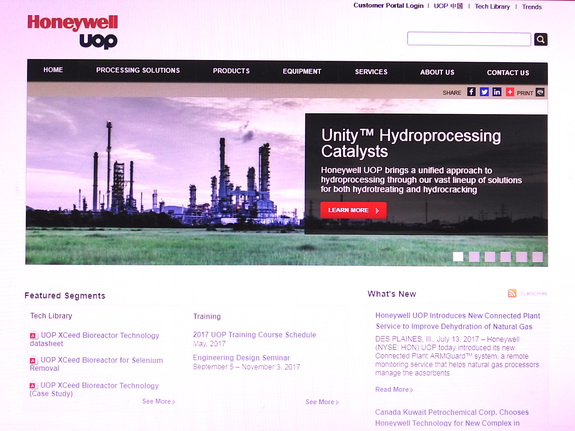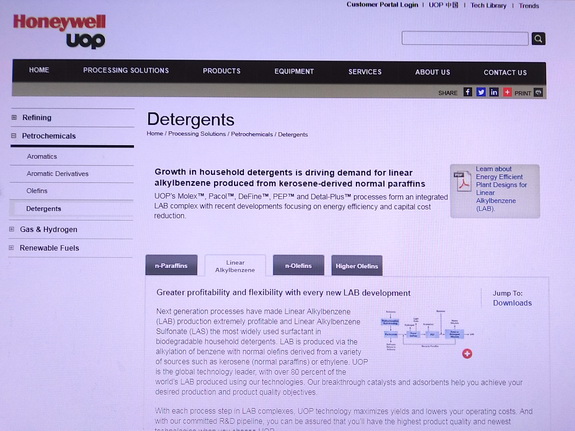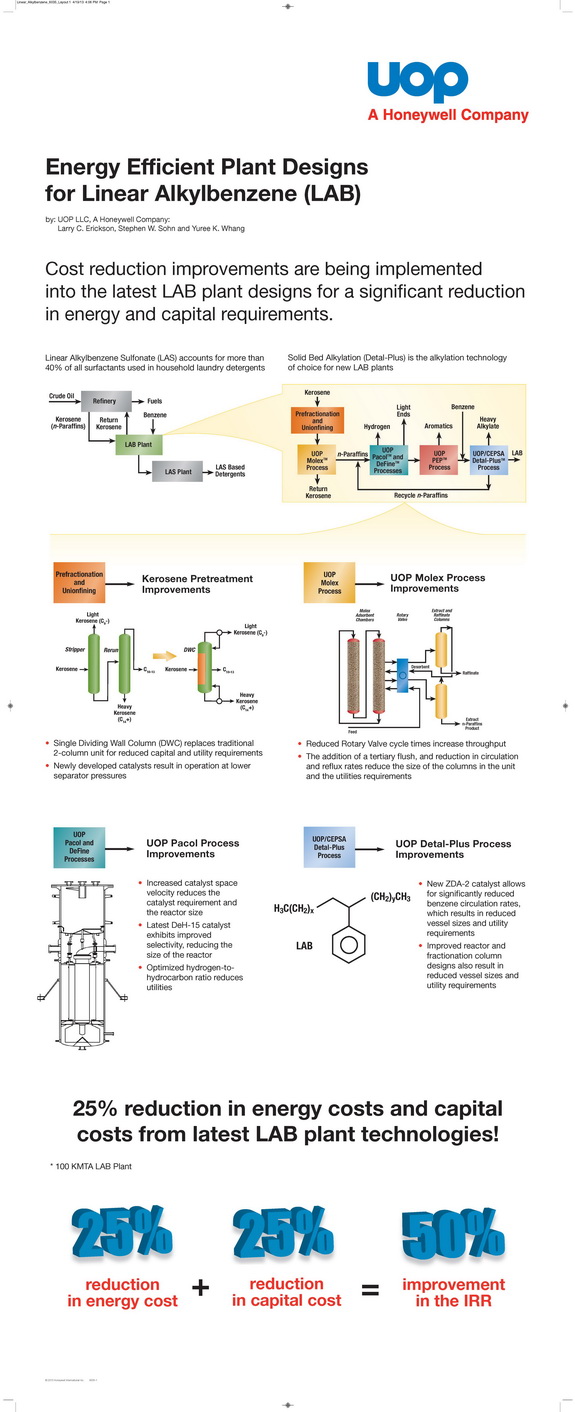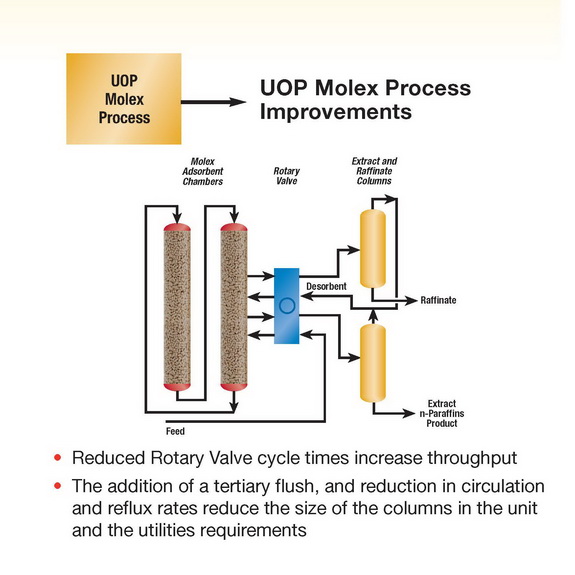17 July 2017



is a 100 percent Saudi-owned closed joint stock company.
It started its operations with
its first integrated normal paraffin and LAB complex
with Honeywell UOP technology in 2006,
and doubled its LAB capacity through an expansion in 2012.
Farabi also operates an LAB complex in Jubail,
on the East Coast of Saudi Arabia.
The company’s new complex in Yanbu
will make Farabi one of the largest producers
of normal paraffins and LAB in the world.
ABOUT FARABI PRODUCTS
Linear Alkyl Benzene (LAB)
Normal Parraffin (NPN)
Heavy White Oil (HWO)
Light White Oil (LWO)
Heavy Alkylate (HAB)
C10 Paraffin
DETAILS
Honeywell (NYSE: HON) announced today that
will use Honeywell UOP technologies
for a new complex in Yanbu to expand
its production of biodegradable detergents.
The construction of the new complex
is expected to be completed in 2020.
As part of the contract, Honeywell UOP will provide
* catalysts and adsorbents
* as well as licensing,
* basic engineering design
* and other associated services for the new complex.

Honeywell UOP technologies include
* a Unionfining™ hydrotreating unit,
* a Molex™ unit to
produce the linear alkylbenzene (LAB)
feedstock necessary for making biodegradable detergents,
* a Pacol™ unit for dehydrogenation,
* a DeFine™ unit to improve product purity,
* and a Detal™ detergent alkylation unit.
When completed, the Yanbu complex will produce more than
* 120,000 metric tons per year of LAB and
* 246,000 metric tons per year of normal paraffins,
in addition to de-aromatized specialty oils, asphalt, sulfonates,
mining chemicals, process oils and lubes.
As a feedstock, the complex will use
* diesel from the Saudi Aramco refinery and
* kerosene from the Saudi Aramco ExxonMobil refinery in Yanbu.
According to
the Gulf Petrochemicals and Chemicals Association (GPCA),
Saudi Arabia had 98.5 million tonnes per year
of petrochemicals production capacity in 2016.
It is the region’s second-largest industry
within the manufacturing sector, creating
more than 500,000 direct and indirect jobs
and $108 billion worth of products as recently as 2015.
The demand for normal paraffins as the feedstock for LAB
continues to increase worldwide.

The Molex process provides the most economical route
to produce normal paraffins from kerosene and diesel,
while also producing
a by-product return stream of Jet A-1 quality jet fuel.
The process operates in the liquid phase and
simulates a moving adsorbent bed in a fixed-bed system
using a proprietary multi-port rotary valve.
Honeywell UOP pioneered the manufacture of LAB in the 1960s,
helping to eliminate the fouling of waterways
from conventional detergents.

Today, LAB from UOP processes
is the most widely-used component
in the production of biodegradable detergents,
emulsifiers, dispersants, wetting and foaming agents.
John Gugel,
vice president and general manager
of Honeywell UOP’s Process Technology and Equipment business
“Farabi chose Honeywell UOP technology because
it is the most efficient and widely used technology
in the world for making detergents,”
“Our technologies will help the Kingdom of Saudi Arabia
* meet growing domestic and regional demand
for petrochemicals and detergents,
* derive more value from its petroleum resources, and
* help it gain self-sufficiency in these chemical intermediates.”
“The Yanbu facility demonstrates that refining companies
in the Kingdom continue
to move downstream into petrochemicals,
where demand is growing and margins are stronger,”
“The location of this new facility also will create
more employment and industrial development
in Western Saudi Arabia.”
Contact:
| John Simley | Johan Janssen |
| 847-391-2278 | +971 56 503 6834 |
| John.Simley@honeywell.com | Johan.Janssen@Honeywell.com |
WWW.CHEMWINFO.COM BY KHUN PHICHAI














